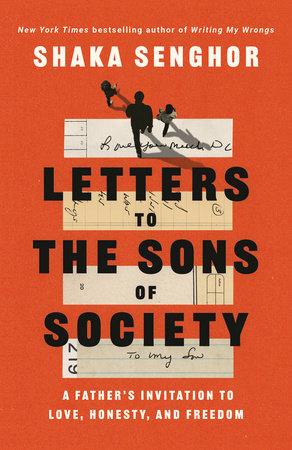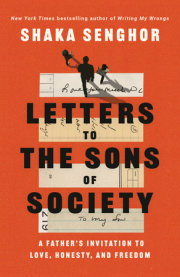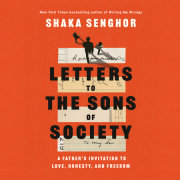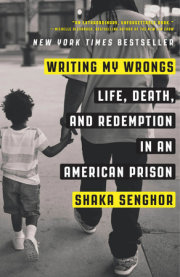A Trip to the Gas StationDear Jay,
Being able to call someone your son or daughter is one of the greatest privileges known to humankind. The responsibility is profound: children don’t choose to be brought onto this spinning planet, and though we hope that each new life comes from a place of love and care, too often a child is a by-product of carelessness or selfishness. You don’t get to choose your parents, your moment of birth, or even something as simple and important as your name. These are privileges a parent should carry out with care and compassion; it’s not a light and airy thing, being a parent. Or at least it shouldn’t be.
So here, Jay, I call you “son,” “my son.” But too often I feel like a fraud when I use this word to describe you. I feel like a fraud because I have not been a good father. I have not worn the mantle of being your parent with due care. I have not lived up to the privilege of your existence. I have not walked beside you in the ways I know you have needed.
In fact—and it devastates me to say this—there are days when I don’t feel like your father at all. Those words burn a hole in me, and I wish I would never even bring them to mind, much less write them. But I have done so, and I must bear the weight of those words here, now, forever.
Some days I’m convinced that we were closer when I was in prison, but prison has a way of skewing all things—the brutality all around you, the sense that your humanity is somehow on hold or contingent upon others. I now realize that the memory of our being closer while I was inside was one of the illusions I had about being a father. I thought the letters we exchanged, the irregular visits, and the few yearly phone calls were solid enough bridges to keep us connected until I was released. But what were they really, compared to the days—years’ worth of them—when I was absent?
Have you ever seen the film of the Tacoma Narrows Bridge? It was a suspension bridge up in Washington State that couldn’t handle the wind. It swayed often and eventually buckled and fell into the Puget Sound. That was what it was like to base my hopes for us on those letters, calls, and visits: eventually, things were going to collapse under the pressure of the air. I now realize how wrong I was, how impossible it is to forge bonds of familiarity under the oppressive weight of a prison sentence. I was so bent on trying to connect with you and guide you down a different path that I didn’t stop to think about the path you were forging on your own on the other side of the bars. How could I have done so? Being a parent is complicated, in or out of prison. But in prison? Impossible, perhaps.
Add to all this, as it must always be added: you were a Black boy. Childhood for anyone is a burden. (I have no idea where the idea that childhood should be carefree comes from.) And being a Black child is harder. We are burdened with a lack of overt affection, and we are not invited to try out the world as innocents. From the start, the world treats us like little men and women; we are told to suck it up, to be tough, that emotion is weakness, that the cold world is coming for us so we’d better be ready. Still, you were so innocent once—a little boy I wanted to protect from all the terrible things that young Black boys face. So many terrible things, things that an innocent child couldn’t conceive of—was I supposed to tell you all of them so that you could avoid them? Was I supposed to hide you from them like Moses in the rushes? Which way should a parent of a Black child turn? To honesty or to obfuscation?
These thoughts swirl around in my mind still. They’re like monsters just beyond the edge of the yard, moaning and keening on a humid summer night, there in the black trees. I try to ignore them, but every night they’re there.
I wanted so hard to be a good father to you, Jay, but here in the calm of my yard in Los Angeles, with the monsters whimpering from the dark streets beyond the fence, I find myself thinking back to the beginning and imagining all the things I wish I could have given you when you needed me the most.
Our first visit was at the Michigan Reformatory in Ionia, Michigan. It was the fall of 1993; you were nearly two years old. I had never met you, never held you, never been woken in the small hours to save you from nightmares. To that point in your life I had only ever seen photos of you, the ones that your grandfather sent along with his letters. My father would fill me in on your personality and write that you reminded him so much of me. That must have been so painful for him, me incarcerated and his grandson reminding him with every coo and first word that his own son was gone. But I took great comfort from those letters, because I knew my father was doing his best to take care of you, to create a connection between his son and his grandson, even though we were miles apart and separated by the mandate of the state.
Imagine, then, the day that my name was called: I had a visitor. I was shocked. It had been so long since someone had come to see me; so long, in fact, that I had blocked out the expectation of seeing anyone. That was how I coped; I low blocked any thoughts of family or affection or connection with the outside world. I was like a tackle aiming for the knees, bringing down any hope so that it couldn’t get past me, couldn’t hurt me, couldn’t make my prison life any more depressing than it already was.
So imagine again: As I reached the visiting room, my hands began to shake, and there were great bolts of sweat dripping down my sides. Here was hope, getting by my defenses, causing me to tremble and sway like a poorly built bridge. The hope was this: I was finally going to see the son I had heard so much about. And there you were, just ten months old, a beautiful brown ball of curiosity and energy. I watched my dad carry you in, and it reminded me of the way he would carry my sisters and put them to bed.
But my excitement at seeing you soon turned to heartbreak when I reached your way and you wouldn’t allow me to pick you up. I had created a narrative about our close bond, but your reality was that I hadn’t been in your life and you had no clue who I was. I had missed all of the bonding moments that take place between children and their fathers. I hadn’t wiped away your tears, hadn’t held a bottle to your lips in the middle of the night, hadn’t changed your diaper. All I had been was a name, the word “father” without the meaning behind it.
I had been a ghost.
You didn’t want me, and I was crushed. When I tried holding you, you cried so hard, and the echo of that cry haunted me for days after our visit. Your tears woke me up out of my sleep, clawing at me, monsters each one—no longer beyond the trees but now in my cell, ripping at my sanity. “He will grow up seeing you as the bogeyman,” my mind said, “or even worse, the invisible man.” Those thoughts took the blood out of my body, left me weak.
For days, I was of no use. I would lie on my bunk, held down by the gravity of those thoughts. It was the weight of realizing that I hadn’t been there for you, that I had forfeited my right to be your father. Each time my cell door slammed, I stewed in the knowledge of my failure, of how wrong it was to call you “son,” and how much I longed to do so.
The Michigan Reformatory is nearly three hours from Detroit. Your grandfather couldn’t afford to bring you as often as he would have liked or as often as I wanted. Even when you came, the rules were so restrictive that they made it almost impossible to bond organically. I couldn’t sit you on my lap or tousle your hair. These simple things, these simple acts of affection and love, are available to other fathers and sons everywhere except here. And it was clear that you were in pain, too. You couldn’t take me home with you, away from that place, and you cried every time you had to leave.
As you got older, I realized that I would have to make you grow up fast, faster than children in less trying circumstances. (Now I realize that this isn’t only what happens to the children of incarcerated parents; being a child generally ends early for Black boys.) I had made choices; because of those choices, I had saddled you with a great daily burden. All parents do this to some degree—remember, no child chooses to be born—but I had added to this cosmic truth a layer of pain from my decisions, the ones that had led me to this prison. Now, every time I saw you, I had to remind you that you couldn’t touch my hair or rub my beard—rules designed to “protect children” when really, they just added pain upon pain. Those of us in prison had no power to change those rules; our children had to see us shorn of all agency. It was a perversion of the norm; parents protect their children from feeling helpless, but not in prison. There the parent is without power, and the child sees. On some visits you just sat across from me and stared. I would ask you what you were thinking, and you always said, “Nothing, Daddy.” But I knew there was something—the tears that glistened at the corner of your eyes revealed that something, a thing so powerful, so damaging, that I was grateful you were unable to put it into words. You sensed that, I think, and held back. But the something was this: Because of my choices, you were locked up, too. Your innocence was held hostage right alongside mine.
Copyright © 2022 by Shaka Senghor. All rights reserved. No part of this excerpt may be reproduced or reprinted without permission in writing from the publisher.











